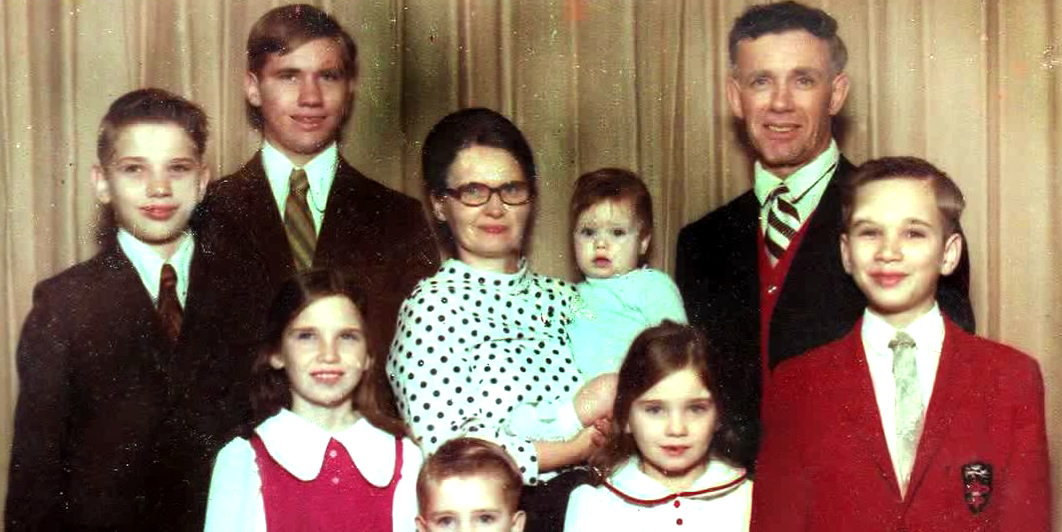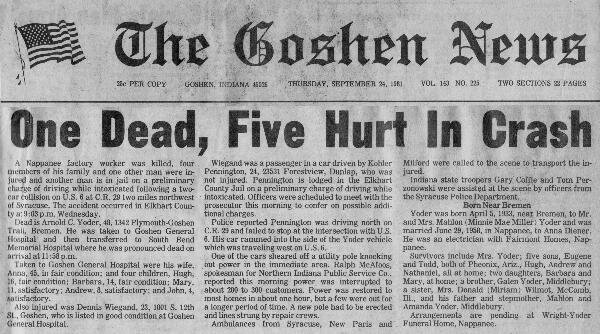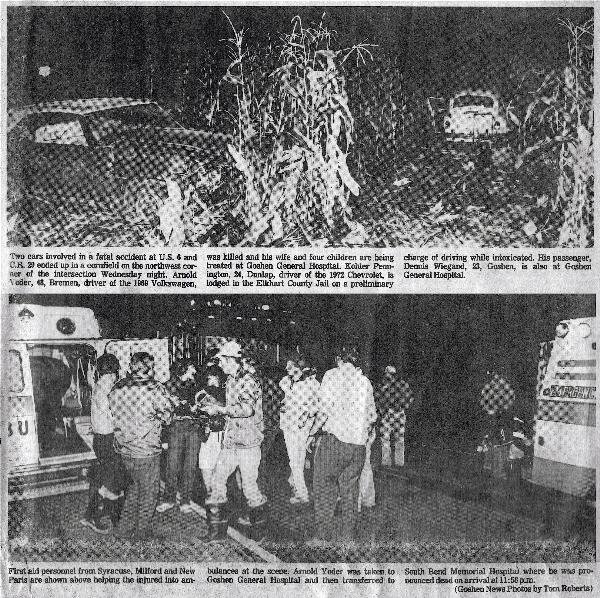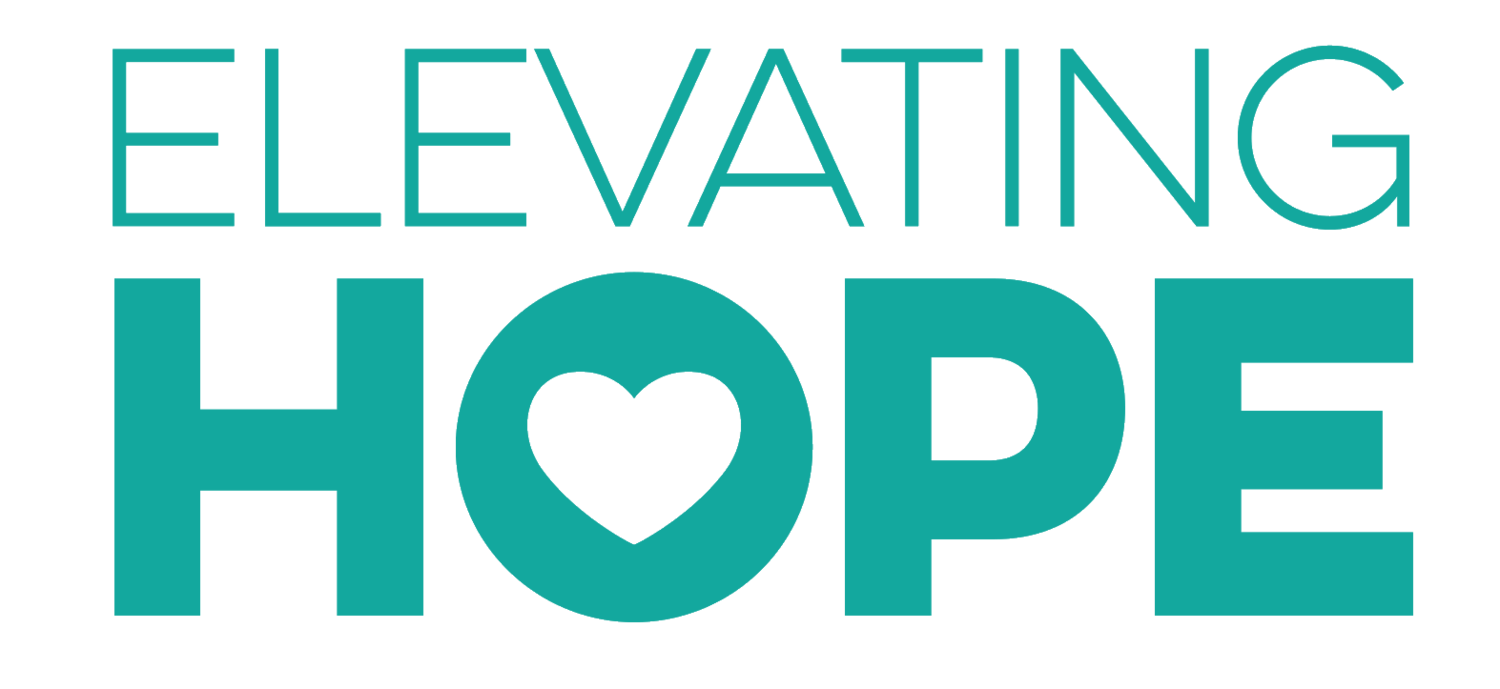38 Years of Lessons
/reading time: 3 min 57 secs
38 years ago this evening, my families life changed forever. A drunk driver struck our car, and our father died. Life, as you can imagine, changed forever. Hi, my name is Mary Elizabeth Yoder. I am a survivor.




It was one of the most horrendous experiences and with it came many challenges that lasted for years, at least for me.
Truth is that each of us deals with grief differently based upon our relationship with the person who died and the circumstances surrounding how the person died. I wouldn't wish it on anyone yet after some healing time, I'm glad for the experiences. I've learned many things from this life-changing event and thought it would be therapeutic to share some of these things, and if it helps someone on their life's journey to move through loss, death, or grief, that would be an awesome bonus. So here goes - one thing I've learned:
"Life is dangerous, no one escapes alive."
Yes, it's like a cheeky joke-line or movie logline, but it's true. No? All that have a life here on this planet will eventually die. So if we are lucky enough to be alive, and we are, one day we also shall (dare I say: "be lucky enough to?") die. *Hmmm, now, that's another debate for another time. Never thought of it as lucky to die before... but I'm thinking in the sense that if we're fortunate enough to have lived, then to die means we have lived so, yes, lucky. What do you think? LMK in the comments below.
At first, this may sound "morbid," but it's just a simple fact. We can't change it. Accept it. Unless you have the fountain of youth and eternal life, then we need to talk. Most don't like to look mortality in the face, including myself at first, it's scary - then I found it liberates.
On the days, I've dared to acknowledge this - I literally imagine an "invisible expiration bar code and date" across my face. So when I look in the mirror, I am staring mortality in the face. But because the digits are always scrambling, I have no clue of the actual expiration date. Sounds like that might make a good sci-fi thriller. Hmmm, I’m liking this.
Click photo to view Invisible expiration date on my forehead.
“She’s so weird.” You may think. And “What does it do?” You may ask. Well for me, it gives fresh impressions such as: “Today could be the day my body expires.” Then soon comes:
“Life is precious.”
and
“How will I make today special?”
“Who and what do I cherish most dear?”
“What matters most to me that makes a difference?”
This little exercise helps me each day - that I practice it, to live more fully and more meaningful - as if it is was my last - because it could very well be.
Try it. You never know what it will or won’t do for you. I’d be interested to know in the comments below the result of your experiment.
It has caused more expression of love and appreciation to and from my family, loved ones and friends. Not to take anything or anyone for granted and to savor even the smallest delights, like -
Dark chocolate with espresso.
Making good ole Mr. Fuzz, the grumpy cat and hypo-thyroid survivor, turn into a purr-box even if it’s for a short time simply by petting him or giving his favorite snack; “Shrimpy.”
Three adopted pups who get so excited when they hear the word “walk, hike or park”. Plus the extra physical exercise releases endorphins which are chemicals produced by the body to relieve stress and pain and boost happiness.
When I don't dare do this sometimes, and it's not every day. Sometimes, I "get too busy" or "forget." It's easy to slide into tedious daily rituals and the drum-drum-drum of the doldrums. And life always marches on... and here it is...
38 years ago. My dad died. WOW.
Time flies.
To be honest, lately, I've been in the dull drums. So, I created this personal challenge to write “38 lessons I've learned in 38 years”. You'll find a few lessons sprinkled in this first blog post on this subject. It’s become a yearly ritual to create something meaningful on the September 23rd anniversary as a way to honor my father. Already by writing this, I am remembering this simple yet effective exercise as a way to live each day more fully. (Uh-hum, throat clears.) Discipline is another lesson I'm learning. As my filmmaking and writing mentor, Professor Jeremy Kagen states: "Discipline leads to transformation." #SoTrue
So if we are lucky enough to be alive, and we are - then - one day, our expiration date will arrive. Obviously, it helps to have a coalition of support for when it's our time when it's someone we know so we can support them too.
I have a confession to make. I've let family, friends, and some people needing grief support down along the way, including myself. Although one could say I'm an expert at having gone through tremendous grief-stricken pain, I'm still learning and growing too. Each time I do, it's more comfortable, and it's something we can all learn how best to support someone going through grief. One of the best things to focus on is just to be present. Don’t feel the need to say anything or fix anything because we can't fix it. Just be present and listen when they are ready to talk.
When my dad died, there was no such thing as "grief support." The world I grew up in it was all left to religion and “trust god’s plan” for our lives. Sometimes it gave me comfort, but mostly I found that it could not address nor understand how to deal with so many overwhelming emotions. Imagine the relief I felt years later when I found out all the thoughts and feelings I was having were all "normal" for someone who is experiencing tremendous grief. #Sigh. Years of angst rolled off my shoulders.
It was a year after my dad's death in 1982, the first grief center was founded. It was named after a courageous boy named Dougy who died of an inoperable brain tumor at the age of 13. Dougy's ability to bond with other teens facing severe medical issues, how he intuitively knew he was dying, and how he helped other kids talk about their fears. Dougy inspired a place where other children, teens, and their parents coping with the death of a family member, could share their experience with others who understood, who didn't tell them to "get over it" or judge how they chose to grieve. Today, there are over 500 organizations worldwide that are using this peer support group model and credit The Dougy Center with their founding, including Elevating Hope.
This grief support model inspired by Dougy, I was introduced to around 2009. It’s been very beneficial even after so many years of had passed. Immediately, I knew this type of support is crucial to help make it easier to cope with so many overwhelming emotions when one is bereaved.
For this and many other reasons, I am a grief support advocate to understand grief, how to grieve and how to best support someone grieving. As one day we will all experience the inevitable, death. Deep grief, I believe it’s been said, is evidence of love.
All that we love deeply becomes a part of us. - Helen Keller.
I’d love to hear from you. Please share your thoughts, comments, concerns, suggestions, critiques and anything you found helpful. Please post in the comments below and get in touch if we can be of any help.
SOURCE:
The Dougy Center [Mission & History]. Retrieved September 23, 2019, from https://www.dougy.org/about-us/mission-history/





